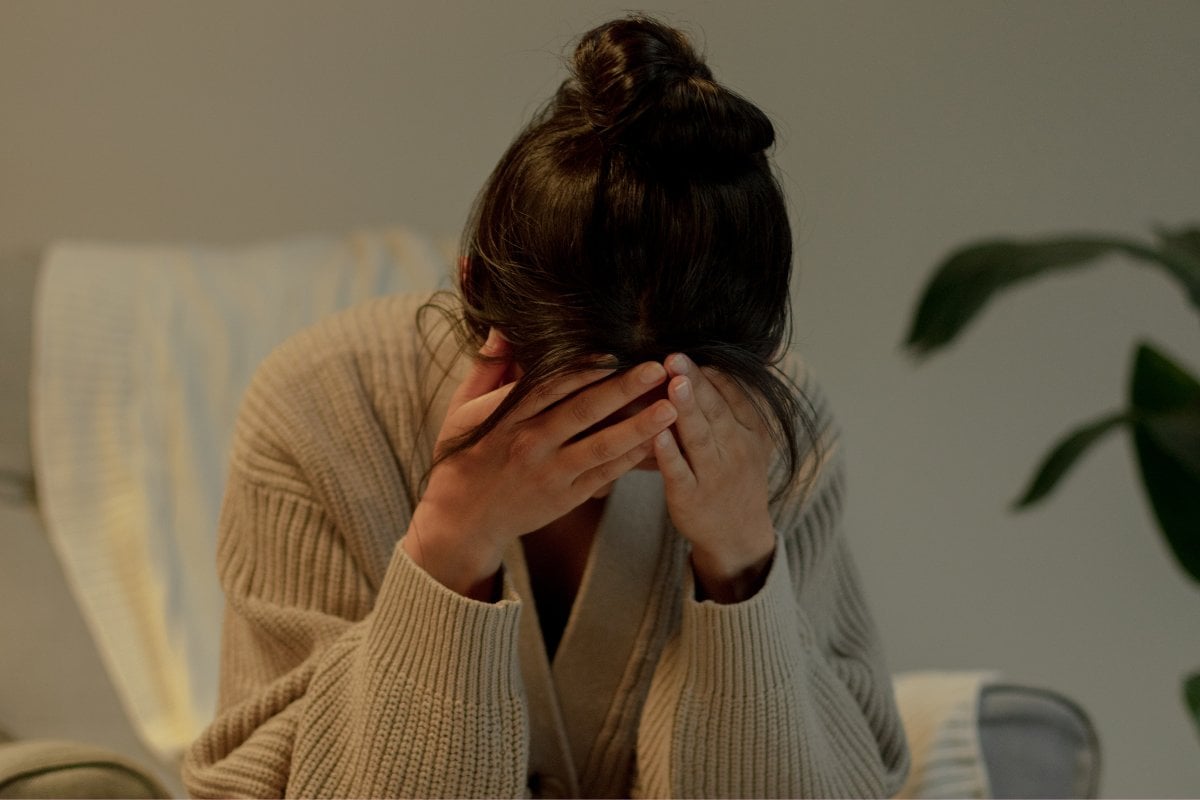
*Lucy remembers the first time she had a migraine.
"It felt like the world was too much," she tells Mamamia. Her head felt fuzzy, confused and painful. She was very young at the time, and thought these symptoms along with nausea, vomiting and dizziness, were caused by a simple headache.
But it was far more than just a headache. It was a migraine — a debilitating and chronic condition that affects 4.9 million Australians. 71 per cent of sufferers are female.
It wasn't until her mid-20s that Lucy was given the proper diagnosis, around the same time as her symptoms became more serious. Over 12 months she had tracked her health in a diary, recording how frequent the attacks were, scaling the severity and any triggers if she could identify them.
Migraines often coincide with other health conditions too. For Lucy, this includes gynaecological issues like ruptured cysts, endometriosis and poor mental health. Big life events and stress can make it worse, and currently, Lucy's migraines are a lot more frequent than they used to be — they're daily.
"If the migraine is severe, it impacts my quality of life completely. I can't work, I can't socialise or I have to do it less often, I'm not contributing to domestic chores in our household with my long-term partner. My partner, he has to take on so much, but he really is such a godsend," she notes.
"I think migraines really are like a hidden disability."
Watch: 5 things to know about migraines. Post continues below.


Top Comments